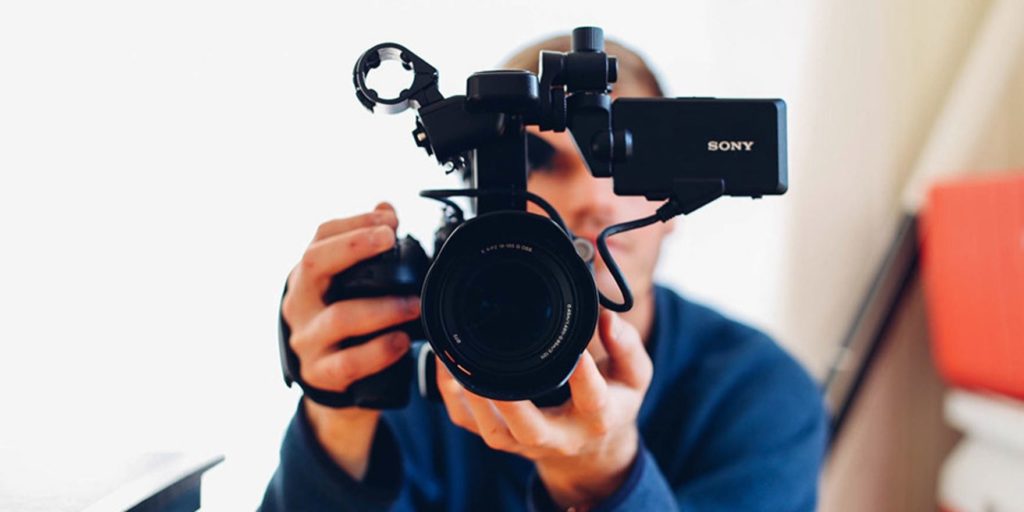So, you want to be a filmmaker. Cool.
That’s the dream of a lot of people too. And sometimes, we may feel a little overly confident in our ability to succeed and rise to the top. That’s not to say you shouldn’t believe in yourself!
Here are some reasons why you might fail in the film industry and ways to overcome them so you can become the next big shot in Hollywood.
1. You’ve Got a Cool Camera

Well, isn’t that nice? You’re a big-time player now. Everyone knows that if you have a good camera, you are a good DP. Do you even know how to use that thing?
While it’s true that a good camera can “allow” you to get better shots, it doesn’t matter at all if you don’t know what you are doing with it.
Having a Ferrari doesn’t do you any good if you don’t know how to drive. Maybe try spending some time learning the in’s and out’s of F-stops, ISOs, and every little detail about how cameras work in general before you decide that the camera will do the work for you.
2. You Memorized the Shortcuts

Well, you might be a fast editor. And this can come in handy when you are creating bad local commercials, but it’s not the way to create a good edit.
Editing skills run much deeper than button mashing and speed. You have to learn about pacing, rhythm, and storytelling.
Spend your energy focusing on the art of the edit. Watch your favorite editors’ work, and dissect why it was effective. Research types of edits, camera angles, and pacing.
You have plenty of time to learn shortcuts once you have the fundamentals in place. Besides, software changes all the time, so as soon as you learn those shortcuts, they’ll probably change anyway. Thanks, technology.
3. You Got it All from the Tutorial
Look, tutorials are great educational tools. We watch them all the time. We even make our own.
But, most tutorials teach you a specific technique or trick. Being able to replicate that only goes so far. And showing off your ability to copy something you saw will only win you so many brownie points.
Go ahead and watch those tutorials, but then take what you learned and expand on it. Experiment with new ideas. Combine techniques to create something unique. Don’t just stop at the tutorial. Otherwise, you are just copying things, and that makes you a Xerox machine.
4. What Does Music Have to do With Filmmaking?
It doesn’t really matter, right? I mean, you are a “visual” storyteller, not a musician. You can pick some random music, and I’m sure it’ll be fine.
Think again on this one. Unless you are making a silent film, and we mean totally silent, the music and audio you use will be just as important as your visuals.
To be a full filmmaker, you need to have a grasp on all aspects of filmmaking. Try thinking about music earlier in the process. Think about the emotions that you want to get.
If you are using stock music, take the time needed to pick music that sets the right tone. And if you are working with a bigger budget, consider hiring a composer to craft something unique that fits your visual exactly.
If you have music selected when you are editing, it can help you with that pacing and rhythm thing we were talking about earlier.
5. Your Friends are Great Actors

Your friends might be great friends, but they probably aren’t great actors. If they are, lucky you, but let’s not kid ourselves.
You aren’t going to ask your friend to mend your broken leg just because you don’t know any doctors off hand. Think about actors in the same way.
Try networking. Go to events where actors hang out. Meet acting students who are actually trying to find interesting things to work on, and who might be able to add something to a part other than memorizing a line.
6. You Went to School for this Stuff
Hey, you graduated from film school! High five!
Now you are going to be rich and famous, rubbing shoulders with Martin Scorsese and Steven Spielberg. Or not.
Maybe instead you can try getting a gig as a PA on a set, or find an internship and a production company. Getting through film school will definitely give you a leg up over the competition, and education is never bad. But just remember that it’s a first step, not a straight shot to the top.
7. Practice. What’s Practice?
You want to be a feature filmmaker. So naturally, you are going to go out and make a feature. How hard can it be right? I mean look at how successful those Blair Witch Project people were.
Simmer down sparky. Making a feature film requires a ton of work. It requires coordinating loads of people, schedules, and information. Here’s a thought… try making a short film.
Many of the best filmmakers of our time started with shorts. It’s a good way to get your feet wet before putting on your big boy pants. And remember, they give out Oscars for shorts too.
8. You’ve Got Big Dreams

Listen, there is nothing wrong with having big dreams. In fact, go you! Dreams are what lead us to create great things. Without big dreams, we run the risk of selling ourselves short.
But… it’s not just about dreaming it into existence. Success comes from hard work. Take that big ol’ dream of yours and work on it every day. Practice your craft. Work towards manageable goals. And when you achieve those goals, set bigger goals. Then, you may actually see that dream come true.
Feel sufficiently depressed about your future in film? Good. Now get out there and make your success. It’s not impossible. In fact, hard work goes a long long way. The point is, a good camera and some tutorials will help you, but they don’t equal success.
You have to get out there every day and practice your craft. Work your way up the ladder and take every opportunity you can. Then maybe… you won’t fail in the film industry.



























